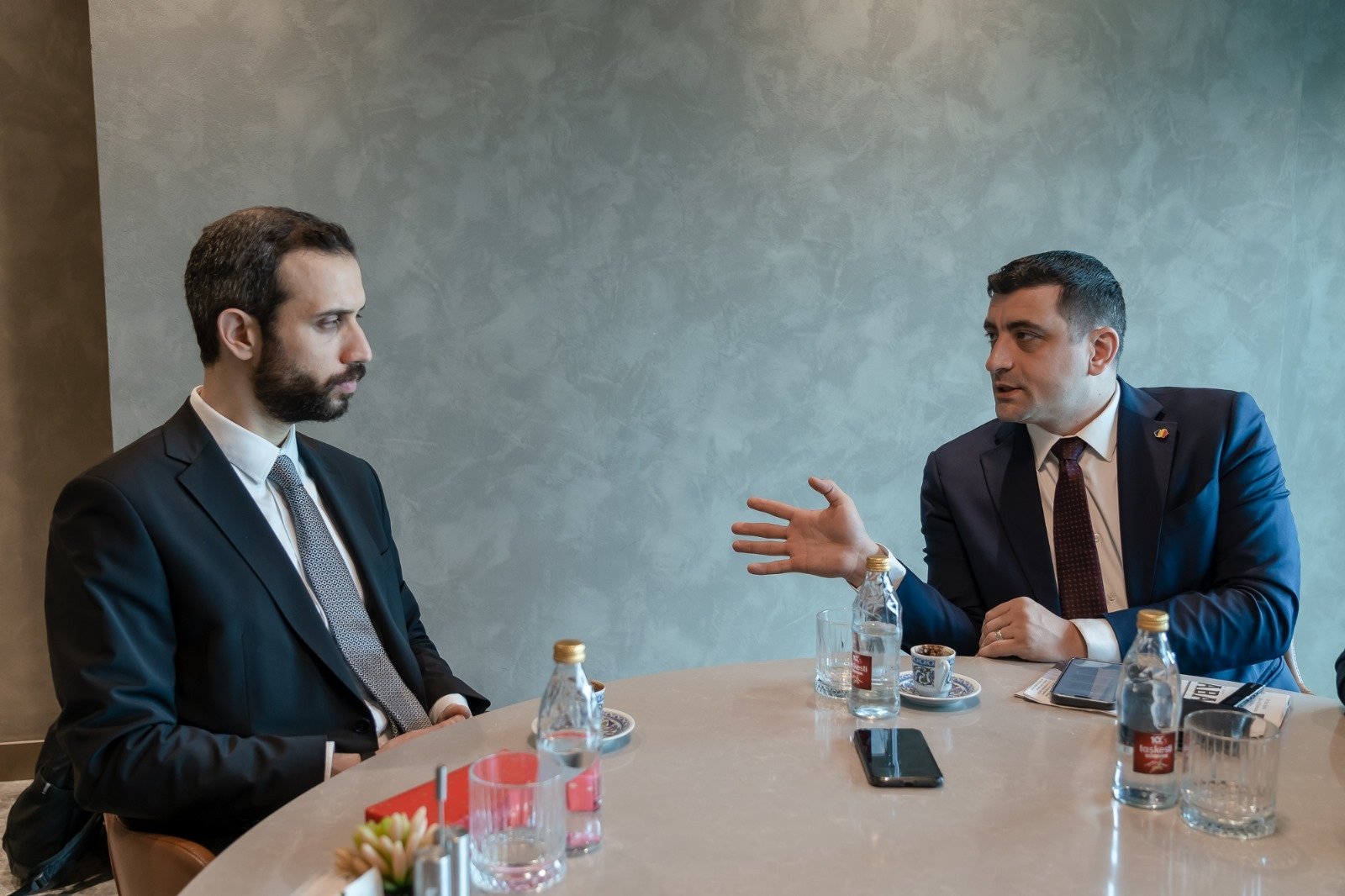© Turkuvaz Haberleşme ve Yayıncılık 2026
As Europe gears up for the pivotal 2024 European Parliament (EP) elections, a symphony of political voices reverberates across the continent, heralding both critiques of the current EP leadership and dreams for a brighter European future. Amid a chorus of discontent directed particularly at Ursula von der Leyen, the president of the European Commission, for her policies and leadership style, there emerges a clarion call for change. George Simion, the dynamic leader of Romania’s center-right Alliance for the Union of Romanians (AUR), adds his voice to this crescendo, advocating for a fresh direction in European leadership.
“A leadership change at the European level will hopefully help recalibrate the EU's problematic relations with allies,” Simion said in an interview with Daily Sabah in Istanbul, criticizing the current decision-makers' policies that direct the bloc.

According to the 37-year-old politician, there are two currents inside the EU, one of which is the global and the other is the "sovereigntist" movement. “The globalist current seeks to create a European super-state only led from Brussels, while the latter, which is growing quite fast in almost all countries, is advocating for a Europe of nations,” he said.
“The time has come and we should catch it,” Simion noted, speaking about the need for unity among right-wing parties in Europe. He believes there is a wind of change in the air, saying, “Hopefully, we'll have one united group,” meaning the unity of the right.
“We are the new kid within the bloc. For example, a surprise is coming from my country (Romania) that we never had a patriotic party in the latest years,” he said, seeing this as a sign of the wave flowing through the corridors of the European Union.
For example, Simion claims that the incumbent policymakers of the EU are damaging the bloc's transparency, which is a reason behind the problematic relations of member states with one another and others as well. He pointed to Türkiye's accession talks as “evidence of the lack of transparency.” If the EP has a different mindset, all these relations will be repaired, he noted.
The 2024 EP election is scheduled to be held June 6-9. This will be the 10th parliamentary election since the first direct elections in 1979, and the first EP election after Britain's divorce deal.
The EP elections are crucial as they determine the direction and priorities of the European Union. The EP is the only directly elected EU institution, representing the voice of EU citizens. The outcome of these elections shapes policies on a wide range of issues, including the economy, environment, security and social issues. It also determines the composition of the European Commission, the EU's executive branch, and influences the bloc's overall direction and agenda.
According to Simion, “There is an ideological battle, which must be won" in the elections, and "differences must be embraced but not annihilated."
“We want to defend our country and continent from ideologies such as neo-Marxism, transhumanism, cancel culture, woke, Soros Foundation propaganda," Simion said, pointing to what's being "propagated" in all the European states, "especially in the western part of Europe."
The young Romanian leader highlighted, "We don't have any other choice but to defend and respect our own values."
Simion’s AUR says they have four main pillars, which are “family, nation, the Christian faith and liberty.” The party aims for the unification of all Romanians “wherever they are located” and is accused by some of fascism. The party is classified as a pro-EU political organization, which seeks to position Romania as a key actor in Central and Eastern Europe within the EU.
During the interview, the Romanian political party head also commented on the Russia-Ukraine war and its impact on Europe.
“In my view, the conflict stemming from Russian aggression should have been halted in 2014 following the occupation of Crimea. It was foreseeable to those familiar with Russian actions that they would advance further and seize Donetsk and Luhansk,” he said.
“Now, they seem inclined to maintain a frozen conflict. This has devastated our farmers and economy,” he highlighted.
Europe is experiencing widespread farmers' protests, initially sparked by the EU's Green Deal but reflecting deeper concerns. Issues include the climate crisis, the energy crisis from the Russia-Ukraine conflict, and tensions over Ukrainian agricultural imports.
The protests highlight the EU's agricultural crisis and strained Western alliance relations, with far-right movements aligning with the protests, potentially challenging the EU's climate goals.
“European leaders must play a more active role in ending the turmoil, fostering long-term peace, and ensuring that the Russian bear remains calm in its den,” Simion said, criticizing the EU’s failure in response to the Russian war.
